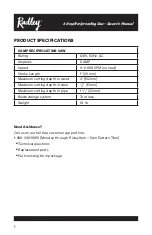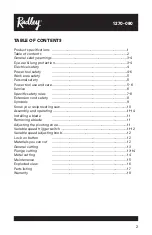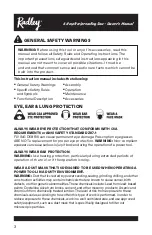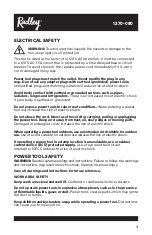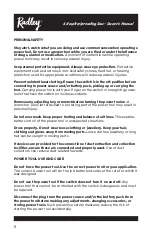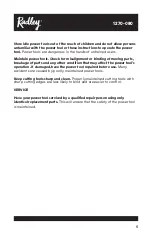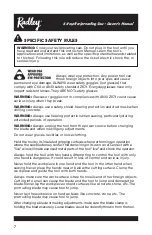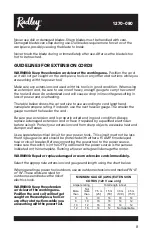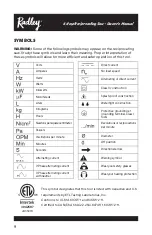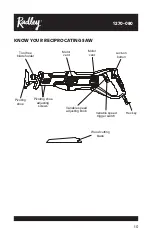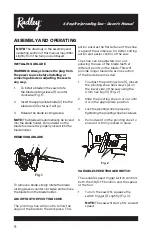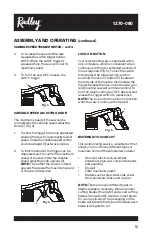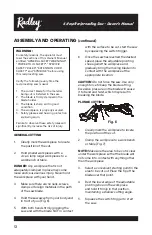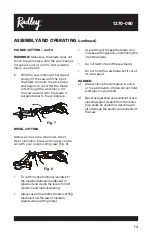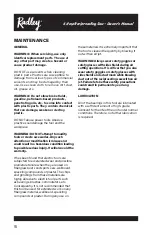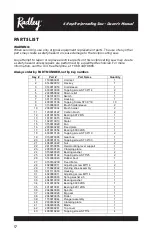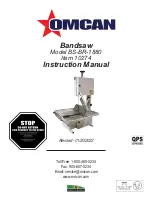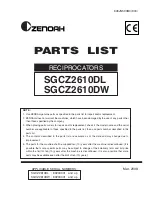
14
1270-080
PLUNGE CUTTING – cont’d
WARNING:
Make sure the blade does not
touch the workpiece until the saw reaches
full speed. Loss of control and possible
injury could result.
6. With the saw running at full speed,
slowly tilt the saw until the tip of
the blade contacts the workpiece
and begins to cut. After the blade
cuts through the workpiece, tilt
the saw upward until the blade is
perpendicular to the workpiece.
METAL CUTTING
Metals such as pipe, steel rods, sheet
steel, aluminum, brass and copper can be
cut with your reciprocating saw (Fig. 8).
To cut thin sheet material, "sandwich"
the material between hardboard or
plywood and clamp the layers to limit
vibration and material tearing.
Always use a fine toothed metal cutting
blade and run the saw at medium
speeds when cutting metal.
Use cutting oil to keep the blade cool,
increase cutting action, and prolong the
life of the blade.
Do not twist or bend the saw blade.
Do not force the saw blade. Let it cut at
its own speed.
DANGER:
a) Always clamp the workpiece in a vice,
or to a workbench or table. Do not hold
workpiece in your hand.
b) Never use gasoline as a lubricant or as a
cleaning agent. A spark from the motor
may cause an explosion. Gasoline will
also damage the plastic components of
the saw.
ASSEMBLY AND OPERATING
(continued)
Fig. 7
Fig. 8


